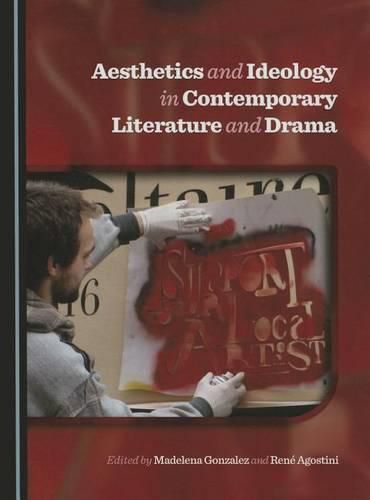Readings Newsletter
Become a Readings Member to make your shopping experience even easier.
Sign in or sign up for free!
You’re not far away from qualifying for FREE standard shipping within Australia
You’ve qualified for FREE standard shipping within Australia
The cart is loading…






The conviction that the development and promotion of the arts, humanities and culture through the study of literature and the aesthetic are the fundamental constituents of any progress in society is at the heart of this volume. The essays gathered here explore the role of the imagination and aesthetic awareness in an age when the corporatization of knowledge is in the process of transforming literary studies, and political commitment is in danger of disappearing behind a supposedly post-ideological late-capitalist consensus.The main focus of the volume is the mutual implication of aesthetics and ideology and the status and value of different types of art within the political arena. Challenging issues in contemporary aesthetics are examined within the wider framework of current debates on the disappearance of the real, the crisis in representation, and the use of new media.The wide range of examples collected here, stretching from experimental poetry in post-war Germany, political commitment in twentieth-century French theatre, and countercultural Rumanian theatre under Ceausescu, to Neo-Victorian fiction, Verbatim theatre in the UK, and political theatre for the masses in Estonia, vouchsafe unique insights into the intersection of aesthetics and ideology and the practical consequences thereof. As such, the volume opens up a space for a meaningful engagement with authentic forms of art from inside and outside the Anglosphere, and, ultimately, uses these examples as a platform from which to imagine some form of aesthethics , representing an ideal union of aesthetics and ideology. This concept, first coined by the French philosopher Philippe Lacoue-Labarthe, will prove to be relevant both within the parameters of the examples discussed here, but also beyond, for the contributors to this volume are unanimous in refusing to believe that aesthetics and ideology can exist one without the other, and in recognizing the centrality of ethics in any discussion of these notions.
$9.00 standard shipping within Australia
FREE standard shipping within Australia for orders over $100.00
Express & International shipping calculated at checkout
The conviction that the development and promotion of the arts, humanities and culture through the study of literature and the aesthetic are the fundamental constituents of any progress in society is at the heart of this volume. The essays gathered here explore the role of the imagination and aesthetic awareness in an age when the corporatization of knowledge is in the process of transforming literary studies, and political commitment is in danger of disappearing behind a supposedly post-ideological late-capitalist consensus.The main focus of the volume is the mutual implication of aesthetics and ideology and the status and value of different types of art within the political arena. Challenging issues in contemporary aesthetics are examined within the wider framework of current debates on the disappearance of the real, the crisis in representation, and the use of new media.The wide range of examples collected here, stretching from experimental poetry in post-war Germany, political commitment in twentieth-century French theatre, and countercultural Rumanian theatre under Ceausescu, to Neo-Victorian fiction, Verbatim theatre in the UK, and political theatre for the masses in Estonia, vouchsafe unique insights into the intersection of aesthetics and ideology and the practical consequences thereof. As such, the volume opens up a space for a meaningful engagement with authentic forms of art from inside and outside the Anglosphere, and, ultimately, uses these examples as a platform from which to imagine some form of aesthethics , representing an ideal union of aesthetics and ideology. This concept, first coined by the French philosopher Philippe Lacoue-Labarthe, will prove to be relevant both within the parameters of the examples discussed here, but also beyond, for the contributors to this volume are unanimous in refusing to believe that aesthetics and ideology can exist one without the other, and in recognizing the centrality of ethics in any discussion of these notions.